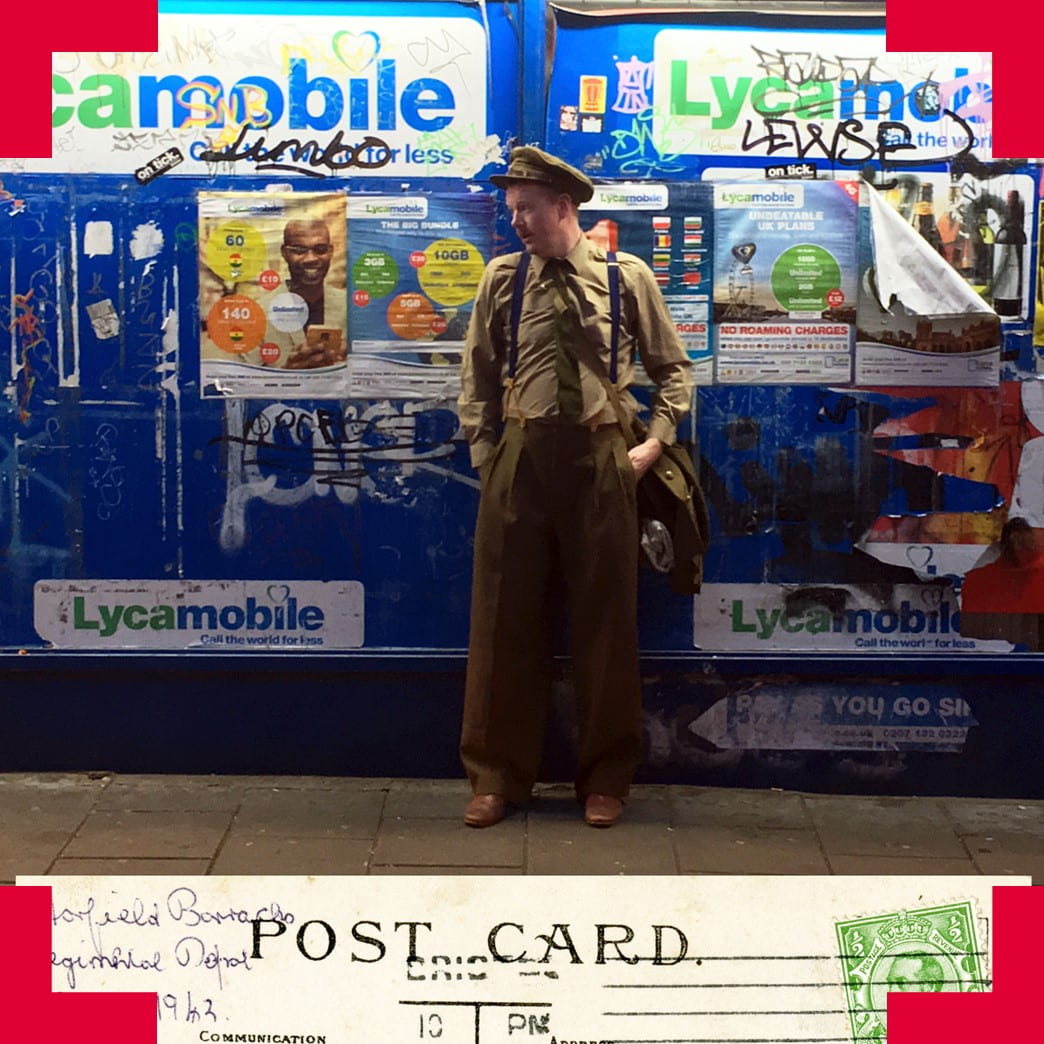Wish You Were Here
Can old, ephemeral items (like postcards) help us to establish a deeper connection with our homes and neighbourhoods?

How can we make the city’s archives more personally meaningful to people? With so many objects and documents holding the secrets of past daily life, Bristol Archives is uniquely positioned to help its residents get acquainted with their predecessors. Its library of postcards offered the perfect opportunity for Bristolians to quickly and easily consider their connection to the people who lived here 100 years ago.
What did the project involve?
A multidisciplinary team of historians, ‘adventure architects’ and archivists chose a sample of postcards sent and received in Bristol before the First World War. On the back, they found snippets of senders’ day-to-day experiences and emotions. These snippets inspired performance projects, as Robert Bickers explains:
Artists re-created some of the postcards, sending them to the current inhabitants of their originally intended addresses. As you can see in the video above, a simple postcard can often be the catalyst for a resident to start pondering: who lived here before me? How do our lives differ? Indeed, how are they similar?
Who are the team and what do they bring?
-
- Robert Bickers (Historical Studies) has led various iterations of the AHRC Connected Communities ‘Know Your Bristol’ projects. His own research has a strong focus on individual experience (Empire Made Me, 2003), on stories of everyday life, and of place. Recent research has used Bristol Record Office files to trace the history of the occupants of 13 Woodland Road (the History Department).
- Nicholas Nourse (Historical Studies) is a social and local historian, and an experienced map maker with expertise in digital cartographies. Nick has detailed knowledge of the postcard archive and part of the ‘Know Your Bristol’ projects. One of his initiatives created a co-produced database of over 3600 entries on the Know Your Place website. Nourse has also completed two projects on Deaf Spaces in Bristol and the Seaside Pleasure Pier.
- Julian Warren (Bristol Record Office) is the Bristol Record Office’s senior archivist. He is the representative and advisor from the community partner organisation and has worked with the RO, Bickers, and Nourse on ‘Know Your Bristol: On the Move’.
- Rosie Poebright (Splash and Ripple) is a digital artist, an experience architect and real-world game designer. Rosie has designed digital artworks, playful happenings and real world games for 8 years. She’s made award winning theatrical street games for Hide & Seek and Igfest in the UK, and learned the fundamentals of visceral storytelling working as writer and director for Slingshot for their citywide zombie chase game 2.8 Hours Later.
What were the results?
The project enabled the Archive team to digitise the postcards, meaning they are all available online for public access. This is especially important, as local history has seen a boom, with many people spending lockdown starting to research their family’s or their home’s history.
Robert Bickers continues to work with Bristol Archives on analysing and exhibiting its visual collections.
An article covered the project and its developments in inews called ‘Lost in the post, letter arrives after over a century’.

